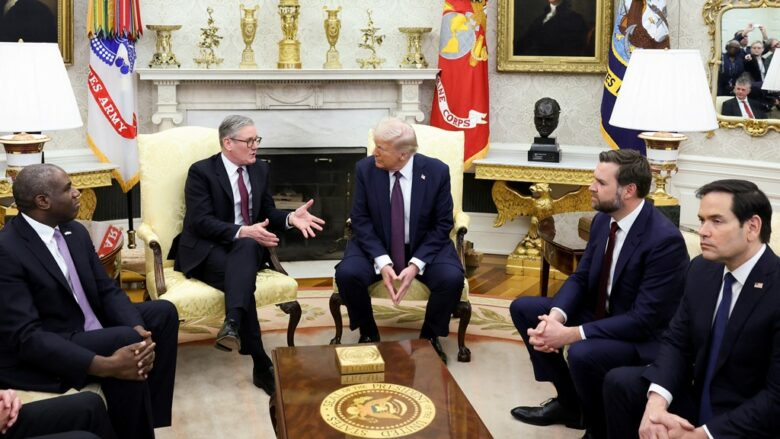Trade Deal Standoff: Vance Demands UK Scrap Censorship Laws or Risk Losing US Agreement
As the UK’s Labour government under Prime Minister Keir Starmer presses forward with controversial online censorship laws, a new obstacle has emerged in the path toward a long-sought UK–US trade agreement: the United States’ uncompromising stance on free speech.
Sources close to U.S. Vice President JD Vance, the Trump administration’s lead negotiator on trade, have confirmed that Britain’s hate speech laws and pending online safety regulations are now a key sticking point. The message from Washington is blunt: “No free speech, no deal.”
Vance Puts UK Censorship in the Crosshairs
The Labour government’s push to police ‘hate speech’ and online ‘misinformation’ is increasingly viewed by Trump administration insiders as incompatible with U.S. constitutional values—and a red line for finalizing any trade pact.
According to reporting from The Independent, Vance is demanding that the UK repeal laws that criminalize speech, particularly those that penalize individuals for “abuse” directed at protected identity groups.
One source close to the vice president told the outlet:
“The vice-president expressing optimism [on a trade deal] is a way of putting further pressure on the UK over free speech. If a deal does not go through, it makes Labour look bad.”
The UK’s Digital Services Tax is reportedly already being offered as a concession by British negotiators. But Washington is signaling that’s not enough. Free speech reform must be on the table.
Vance Doubles Down: “There Have Been Infringements”
Vance himself raised the issue directly with Starmer during a recent meeting, according to UnHerd. In the exchange, he stated:
“I said what I said… there have been infringements on free speech.”
He made clear that the erosion of speech rights in the UK is viewed not just as a bilateral issue, but as part of a broader collapse of Western values that he and President Trump are determined to halt.
A source familiar with Vance’s negotiating approach put it plainly:
“He is obsessed with the fall of Western civilization. And if the UK wants to be a trusted partner of the U.S., they need to choose a side.”
Globalist Press Downplays Speech Concerns
UK media, including The Independent, have portrayed the U.S. demands as extreme, arguing that British hate speech laws are merely designed to protect minorities and LGBT+ groups from online harassment. But critics say these laws criminalize dissent and enable politically motivated prosecutions of citizens for expressing views deemed “offensive” by the state.
Pro-free speech advocates have warned that UK laws are being used to stifle criticism of government policy, silence religious views, and punish political expression, often without due process.
What’s at Stake
While both countries have publicly signaled that a trade deal is near, the ideological divide over speech and censorship now threatens to derail it entirely. And for the Trump administration, free speech is not just a cultural preference—it’s a condition for partnership.
The UK, meanwhile, faces mounting internal opposition to Starmer’s speech restrictions. If the price of retaining them is a collapsed trade deal with the world’s largest economy, that opposition is sure to grow.
As Vice President Vance emphasized in a recent interview:
“You cannot have a functioning democracy if people are afraid to speak. If the UK wants a deal, it’s time to respect liberty.”

